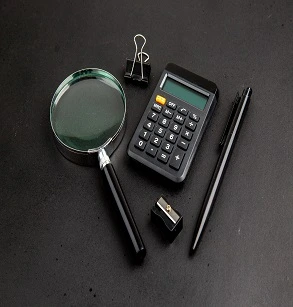Are you interested in Forensic Accounting? Then this is the perfect course for you. Learn how to manage Forensic professionally!
400 Hours Duration
Completion Certificate
No Entry Requirements
Endorsed Courses
Get Your Course Now
Only 1 Day Left at this price
Discount 80% £560.00


Course Overview
Graduate Certificate in Forensic Accounting
All over the world, several businesses suffer from fraud loss daily. This graduate certificate in forensic accounting is a course that provides candidates with the much-needed information of financial crimes, the fraudsters behind them and the skills required to catch them.
This graduate certificate in forensic accounting online is for anyone interested in acquiring forensic accounting, fraud detection, and investigation skills. The course can be taken without any previous knowledge. It is designed for your convenience and fits nicely in any schedule; you will also be provided with full tutor support and given assignments for the sake of assessment.
The course begins with a subtle introduction to forensic accounting and points out the most common personality traits of fraudsters to look out for. Then it discusses the most effective fraud detection methods and the procedures to follow when investigating. Candidates are then educated on the methods of gathering relevant evidence and the significance of non-financial evidence. It ends by describing the process of investigating witnesses, the definition and importance of fraud risk assessments and the most effective fraud prevention techniques.
Who Should Take This Course?
The Diploma in Forensic Accounting (QLS Level 4) is ideal for a wide range of individuals looking to build or enhance their skills in accounting and fraud investigation. This course is suitable for:
- Aspiring Accountants – Individuals seeking to develop professional-level accounting skills with a specialization in forensic accounting.
- Graduates and Job Seekers – Those looking to enhance their CVs and gain a competitive edge in the job market through a recognized qualification.
- Accounting Professionals – Practicing accountants interested in expanding their expertise into the field of forensic accounting and financial investigation.
- Career Changers – Individuals from other fields who have a keen interest in financial crime, fraud detection, or investigative roles.
- Forensics Enthusiasts – Anyone fascinated by forensic science and its application in financial crime, looking to gain relevant knowledge and skills.
No prior experience is required, making this course accessible to beginners as well as professionals seeking to specialize or diversify their career paths.
Course Syllabus
The Diploma in Forensic Accounting contains nine units:
Module 1: Foundations of Forensic & Investigative Accounting in the AI Era
This module introduces the fundamentals of forensic and investigative accounting, exploring its role in modern finance and the impact of AI on fraud detection practices.
Module 2: Fraud Schemes, Economic Crime & Behavioural Red Flags
Learners study common fraud schemes and economic crimes while also learning to identify behavioural red flags that signal fraudulent activity.
Module 3: Data Analytics & AI Techniques for Fraud Detection
This module focuses on the use of data analytics and AI tools to detect unusual financial patterns, making fraud investigations faster and more effective.
Module 4: Digital Evidence Collection & Preservation
Students learn methods to collect, secure, and preserve digital evidence, ensuring accuracy and admissibility in legal proceedings.
Module 5: Investigative Procedures & AI Enhanced Evidence Analysis
This module covers advanced investigative techniques while highlighting how AI enhances evidence review and analysis for fraud cases.
Career Path
Upon successful completion of the Diploma in Forensic Accounting (QLS Level 4), candidates will receive an endorsed certificate, demonstrating their competency and readiness to pursue a range of career opportunities in the financial and investigative sectors.
This qualification can open doors to stable and rewarding roles in areas such as:
- Financial Forensics
- Tax and Compliance
- Fraud Investigation
- Loss Prevention
- Risk Assessment and Audit
- Corporate Security and Governance
The certificate serves as a strong addition to your professional profile, enhancing employability and credibility within the field.
Entry-level salaries for forensic accountants typically start around £30,000 per year, with significant potential for growth as experience and qualifications increase. Advanced roles in forensic accounting can command much higher salaries, especially within government agencies, law enforcement, large corporations, or specialist consultancy firms.
Endorsement
Upon successful completion of the Diploma in Forensic Accounting (QLS Level 4), candidates will have two certificate options to choose from:
Option 1: Certificate Issued by the Quality Licence Scheme (QLS)
This certificate is issued by the Quality License Scheme, confirming that the course meets high-quality education standards. It is ideal for learners who wish to showcase their formal completion of a professionally developed training program.
Option 2: Accredited CPD Certificate Issued by the CPD Standards Office
Candidates also have the option to claim a Continuing Professional Development (CPD) certificate, accredited by the CPD Standards Office. This internationally recognized certificate is particularly suitable for professionals who want to demonstrate their commitment to ongoing development and enhance their CPD records.
Both certificates offer valuable recognition and can strengthen your professional profile across a range of industries.
FAQs
1. Is this course suitable for learners without a background in accounting or finance?
Yes, the course is designed for beginners and professionals alike. All key concepts are introduced from the ground up, making it accessible to those with no prior experience in accounting or fraud investigation.
2. Will I learn practical forensic accounting techniques I can apply in the workplace?
Absolutely. The course focuses on practical skills such as fraud detection methods, evidence gathering, risk assessment, and prevention strategies, preparing you for real-world forensic accounting challenges.
3. Can I use this qualification to pursue a career in forensic accounting?
Yes, the Diploma in Forensic Accounting provides a strong foundation for entry-level roles in forensic accounting, fraud investigation, compliance, and internal auditing.
4. How long does it take to complete the course?
The course is self-paced, allowing you to complete it in your own time. Most learners finish within 3 to 6 months, depending on personal study schedules.
5. Do I need any special software or tools to study this course?
No, all course materials are provided online and can be accessed with a basic internet connection. No accounting software or programming tools are required.
6. What is forensic accounting ACCA?
Forensic accounting in the context of ACCA refers to the use of accounting, auditing, and investigative skills to assist in legal matters. ACCA-qualified forensic accountants often work on fraud cases, disputes, and litigation support.
7. What is the simple definition of forensics?
Forensics is the application of scientific or specialized methods to investigate crimes or legal issues. In accounting, it involves uncovering financial fraud, embezzlement, and economic crimes through detailed financial analysis.
8. What are the four types of forensic accounting?
The four common types of forensic accounting include:
- Litigation support
- Investigative accounting
- Fraud examination
- Bankruptcy and insolvency analysis
9. What is a famous example of forensic accounting?
One of the most famous examples is the Enron scandal, where forensic accountants uncovered massive accounting fraud that led to the collapse of the company and the dissolution of Arthur Andersen, one of the world’s top accounting firms at the time.
10. What are the main objectives of forensic accounting?
The main goals of forensic accounting are to detect and prevent fraud, support legal proceedings through financial evidence, conduct risk assessments, and ensure financial transparency in organisations.


Your Certificate, Delivered Instantly & Professionally
Finish your course and instantly download your PDF certificate to share or showcase. Prefer a hard copy? We’ll send you a beautifully printed version, ready to frame and display with pride!
Recognised CPD Certification
Earn a fully accredited CPD certificate that’s respected across industries.
Instant Download & Print
Download your certificate immediately after completing your course – perfect for your records or CV.
Printed Copy Included
You’ll also receive a professionally printed certificate delivered straight to your door – ideal for framing and display.

Verifiable Unique ID
Each certificate includes a unique ID number, easily verifiable by employers.
High-Quality Print
Enjoy a professionally printed certificate that looks impressive and feels premium.
Completion dates included
Your certificate clearly displays the completion date, making renewal planning simple.
What our Students say
Celebrating our Clients and Partners





























